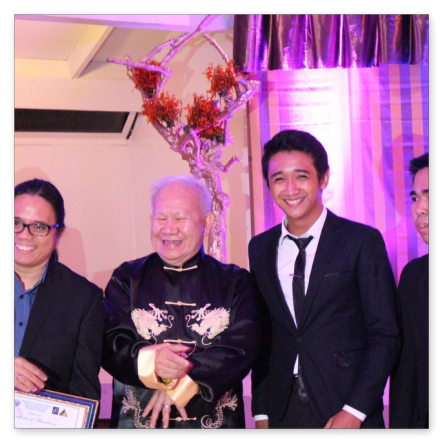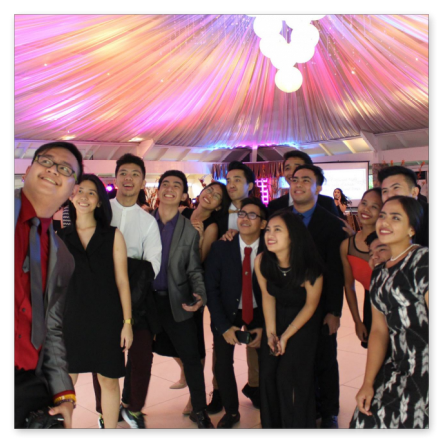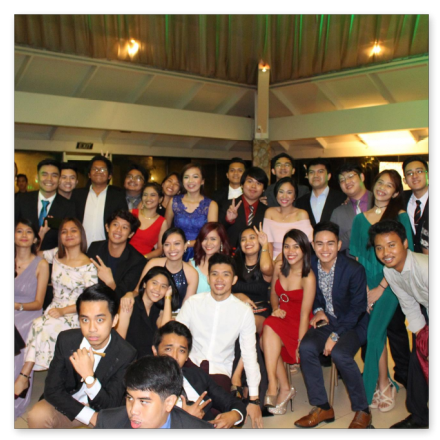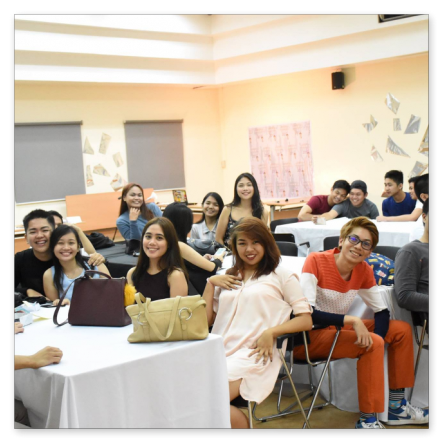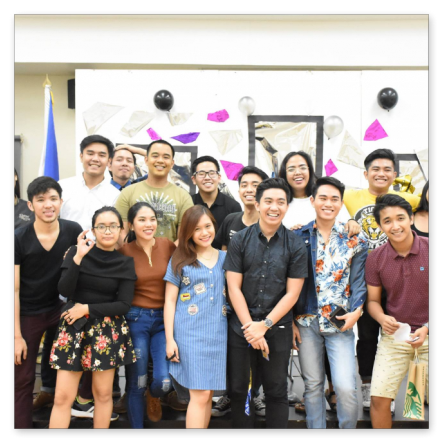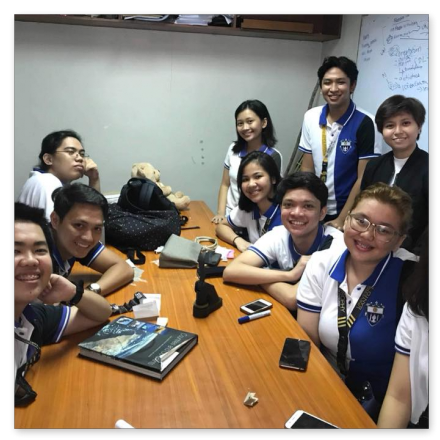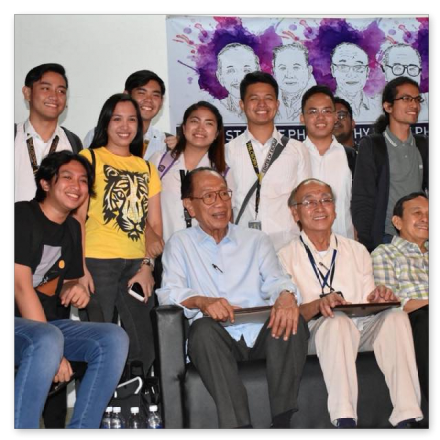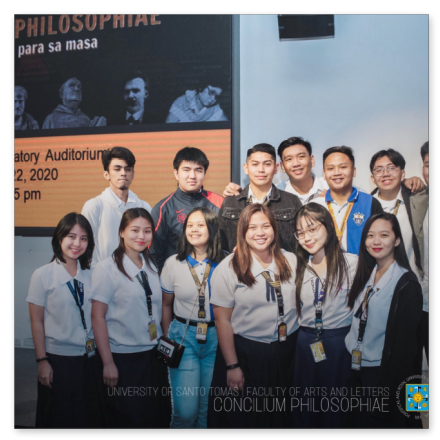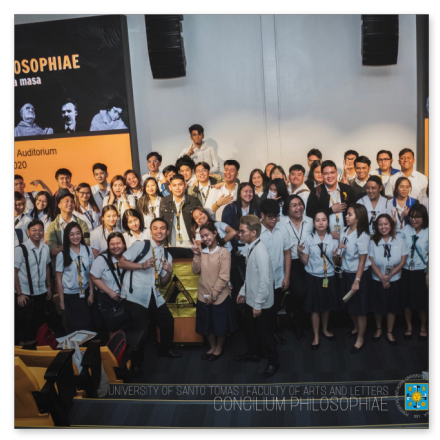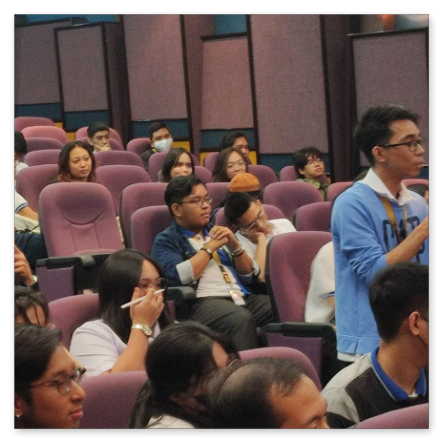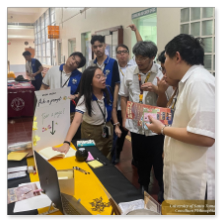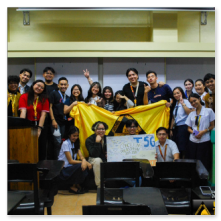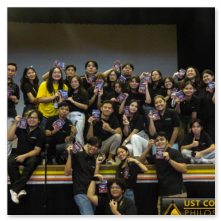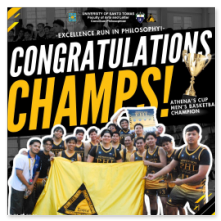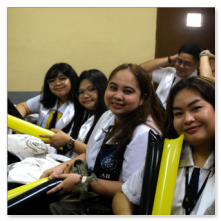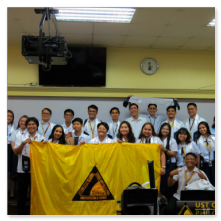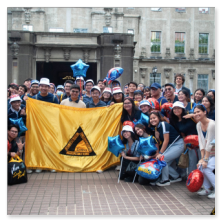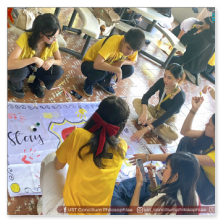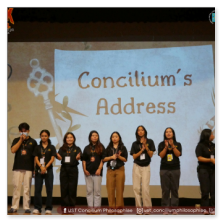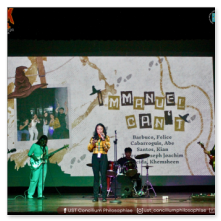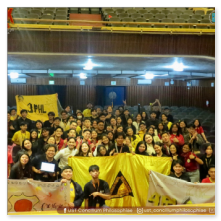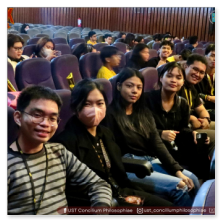Why study philosophy?
Philosophy comes from the Greek words philein (love) and sophia (wisdom), referring to a fraternal love shared by those bounded by the same pursuit of attaining wisdom. This should not mean that the emphasis is solely on the end since, and more importantly, the process of wisdom's disclosure is made possible by critical thinking, objections, and discourses.
Philosophy is a dialogical activity--struggling with a concept, struggling with another person's view to know wisdom's whole.
In a world where dissent is silenced and critical views are shunned aside, Philosophy perseveres in its noble task of forming minds and hearts.
Choose Philosophy. Choose UST.
Proceed below for the undergraduate degree
while discover the MA Philosophy and PhD Philosophy degrees offered at the UST Graduate School
Bachelor of Arts, major in Philosophy
Department of Philosophy, Faculty of Arts and Letters
Why an AB Philosophy at UST?
As a discipline that seeks the truth and is a guide for life, the program aims to analyze the different aspects of reality, to see their intentions, and to combine them into a systematic whole. The study of Philosophy involves not only the objects under investigation, but also the subject who investigates not only the thought, but also the thinker. More importantly, the study teaches the students to think analytically and critically to enable them to provide deeper insights into the nature of being human, of things, and of values to live by.
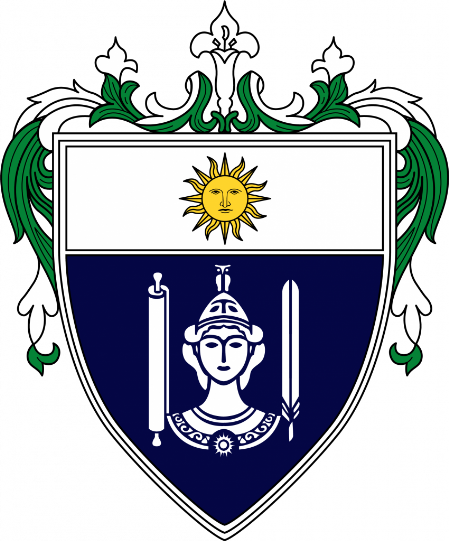
Informed by the Vision and Mission of the UST Department of Philosophy and the Faculty of Arts and Letters, the A.B. in Philosophy curriculum is one of the most comprehensive in the country; as such, the Program Intended Learning Outcomes projects a Thomasian Philosophy graduatewho:
Demonstrates critical thinking and ethical consciousness. The teaching of “General Education Courses” will introduce philosophy students to the basic philosophical branches and sub-branches, to develop their critical reasoning skills, and make them cognizant of socio-politico-ethical issues relevant to human beings and society.
Evaluates and articulates various philosophical positions and theories. The teaching of “Professional Courses” to philosophy students will familiarize them with philosophical issues, from the most rudimentary to the most complex, gleaned from the various traditions in the global history of philosophy (East and West). Through this, students will be firmly grounded in the various complex philosophical debates which, in turn, become the foundation of comparison, criticism, and defense of these philosophical theories.
Contributes to the development of philosophical discourse. It is the ultimate aim of the AB in Philosophy program to instill the value of philosophical research among the students. With a comprehensive mastery of various philosophical theories, students are guided by mentors to explore and foster key areas of strength of the Department (Filipino Philosophy, Oriental Thought and East-West Comparative Philosophy, Aristotelian-Thomistic Philosophy and Scholasticism, Continental European Philosophy, and Anglo-American Philosophy). Philosophy students are exposed to more complex philosophical issues and new philosophical trends via “Seminar Courses.” Moreover, as a final requirement of the program, students contribute to the exploration and fostering of these key areas of strength by conducting and submitting their own research through “Research Courses.” This training will then prepare the students for graduate studies in philosophy.
Applies critical competencies in other professional areas and industries. In addition to intensive training in key areas of strength of the Department and in philosophical research, it is an important aim of the AB in Philosophy program to prepare its students for other professions, such as religious, legal, and government, inter alia.
Careers after AB Philosophy
Taking Philosophy as a Bachelor's degree opens a wide future for each graduate since the lack of a single career path with a corresponding professional examination allows having a philosophy degree an advantage in various work environments. Philosophy is a sought-after discipline as it provides a good foundation for various career opportunities. Numerous alumni have flourished in their respective fields such as:
Academe (teaching and research) Research and PublicationLegal/Paralegal Profession Human Resource ManagementCorporate and Administrative Positions Journalism and MediaArts and Culture Civil Service and Religious Vocation
Potential career paths for our graduates are:
Academe
Countless graduates have continued with postgraduate studies in the University and even abroad to further their study of Philosophy and to eventually teach and do research. Majority of our current faculty members are UST graduates of both the undergraduate and graduate levels. The diversity of the AB Philosophy curriculum at UST offers our students an array of themes both in Eastern and Western theories, spanning ancient to contemporary debates, and our graduates confirm that this allows them to easily be at par with their cohorts who are graduates of universities abroad. The scope of the curriculum and the skills fostered in the various courses prepare our graduates for potential scholarship applications, which several of our alumni have successfully experienced.
Legal/Paralegal Profession
Philosophy is a staple prelaw degree, and our alumni testify to the advantage offered by the type of critical thinking fostered by philosophical studies compared to other prelaw degrees. Critical and analytical thinking skills honed through various assessments in classes are aided by the theoretical insights gathered from extensive discussions on ethical reasoning and political philosophy found in our curriculum are vital for those in the legal profession. Our graduates have eventually proceeded to the law profession, becoming attorneys, counsels, and even undertaking (para)legal research.
Corporate and Administrative Positions
Our curricular and extracurricular activities expose our graduates for key positions. Seminar classes and activities of the undergraduate council offer students the opportunity to organize and participate in conferences, learn essentials communicative skills, and practice proper information dissemination. Debates and other intellectual stimuli in our courses are foundational for the cultivation of strategic thinking and problem-solving skills, prerequisites for confronting bigger challenges in the workplace. Several of our alumni thus have thrived in various corporate and administrative positions, and even within the University, our alumni have held administrative positions, some testifying that this is a product of the formation offered by the Philosophy degree programs.
Research and Publication
Doing research is fundamental to studying Philosophy. The assessment tasks of each course of the AB Philosophy degree and even our graduate programs are focused on sharpening students’ research skills. This is a priority, considering the extensive research culture of the Department of Philosophy. Our graduates have become key researchers for companies and universities, even taking on administrative roles that overlook research, and have become award-wining authors. Beyond the academe, a number of graduates have continued to thrive in the wider publishing industry, working as members of editorial boards as copy editor, proofreaders, and many others.
Human Resource Management
The scope of our curriculum exposes students to a more holistic approach to human behavior and reasoning, grounded on cultural diversity and competence. This is evidenced by the range of readings included in each of the courses and the centrality of cultural diversity found especially in discussions of non-Western philosophy. Beyond this, the student council at the undergraduate level allows for a more pronounced approach to organizational skills and human resource management. This is given emphasis through group activities found across courses ranging from class debates and discussions on philosophical problems to group presentations and case studies. A number of our alumni have eventually managed human resources of top companies of the country.
Journalism and Media
Philosophy offers a strong foundation for an eventual career in journalism and media with the great emphasis given to research in our AB Philosophy and even postgraduate degrees. With the importance of gathering information, verifying facts, and presenting well-researched stories in these fields, the assessments found across the curriculum provide the rudiments for an eventual career in these fields. The strong bent on critical thinking and questioning perspectives are central to the Department’s pedagogy, aided by the need for students to create compelling arguments in several activities within our courses, both on an individual and group level. The research skills honed within our courses allow our students to ensure the accuracy and credibility of their journalistic and media work, and a number of our alumni have become have ventured into these fields successfully.
Civil Service and Religious Vocation
Philosophy is a discipline that prepares individuals for higher service. This entails both a civic and religious direction. Our curriculum exposes students to an array of key thinkers and debates in moral and political philosophy that raises pertinent questions for nation-building. Alongside this, courses on Thomism and Philosophy of Religion provide the proper the intellectual climate for pondering on greater realities. These theoretical underpinnings are given greater emphasis through the extracurricular activities organized by the Department and the University that foster a culture of stewardship among our students—a stewardship of talents that require giving back to the community in the form of community extension and religious service. Our alumni thus have served in different government positions in LGUs throughout the country and also have continued to the religious life.
Arts and Culture
Besides analytical and critical thinking skills, a degree in Philosophy also offers creativity and a historical appreciation. A philosophical background fosters the ability to integrate diverse perspectives and create holistic interpretations of cultural and artistic phenomena, allowing professionals in arts, culture, and historical studies to draw on the relationship between philosophy and other disciplines, such as history, literature, and sociology. The Department’s pedagogy and that broad range of courses in our curriculum encourages an interdisciplinary approach to appreciate the world from an aesthetic perspective, with emphasis given to specific cultural nuances and the close connection between history and philosophy. Our graduates have excelled in the fields of literature and creative works, at times becoming successful and award-wining writings, while other potential careers may be found in eventual focus on curatorship, cultural studies, and artistic expressions.
Get involved!
The undergraduate Philosophy community is lively with a University-recognized organization, Concilium Philosophiae, that spearheads events and caters to the various needs of each member be it academically or through community extension.
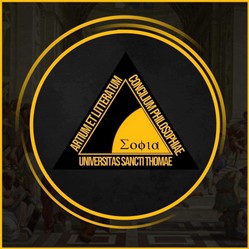
The Concilium Philosophiae is the organization of the Philosophy majors of the Faculty of Arts and Letters of the University of Santo Tomas. It is officially the Concilium Philosophiae Sancti Thomae Aquinatis Manilensis (The Philosophy Council of St. Thomas Aquinas of Manila) and may also be referred to as “The Philosophy Council” or “The Concilium.” In the university, the Concilium is officially recognized by the Office of Student Affairs and is a part of the Student Organizations Coordinating Council (SOCC). As a college-based organization, it is an active member of the Board of Majors of the Faculty of Arts and Letters. It is also a founding member of the Council of Filipino Philosophers (COFPHI), the only association of undergraduate philosophy students representing the universities/colleges in the country. Concilium Philosophiae also enjoys the recognition of national philosophical organizations, namely the Philosophy Circle of the Philippines (PCP), and the Philippine Academy of Philosophical Research, and the Philosophical Association of the Philippines (PAP).
The undergraduate community hosts a philosophy journal, TALISIK, that aims to bridge research thrusts from faculty members to the youngest members of the UST Philosophy community.

TALISIK is a Filipino word. It is a contraction of “Talas” [Keenness] and “Saliksik” [Search]. TALISIK then means “Katalasan ng isip na umunawa ng anuman” [Keenness of the mind to understand anything] and “Malaliman at matalinong pagdalumat sa kahulugan ng anuman” [In-depth and intelligent search for the meaning of anything]. Based from the definition of TALISIK, the journal's editorial board intends to demonstrate the acumen of undergraduate students of philosophy through their research undertakings. The journal is an undergraduate laboratory journal of Kritike, the Department's journal, that primarily caters to the works of the UST undergraduate students of philosophy, but also welcomes contributions from other fields and institutions.


